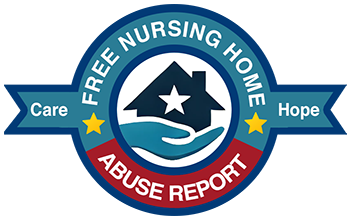A growing number of states are permitting the use of video cameras in nursing homes and assisted-living facilities to help detect abuse or neglect of residents, according to a report in the New York Times.
17 states have now passed legislation allowing cameras in eldercare facilities, and several more are considering doing the same.
The report cites the case of Jean H. Peters and her family, who installed a camera in the apartment of their mother at a Minnesota assisted-living facility and were able to detect evidence that she was being abused and neglected by staff members.
Following her mother’s death, Ms. Peters helped found Elder Voice Advocates, a coalition of elders, adults with disabilities and their family members and others who have experienced abuse, neglect and exploitation of loved ones who receive services from long-term, boarding and home care providers. The organization launched a push to have cameras permitted in the rooms of nursing home and assisted-living residents in Minnesota, and a state law to that effect was passed in 2019.
Eight more states approved similar camera measures by the following year: Illinois, Kansas, Louisiana, Missouri, New Mexico, Oklahoma, Texas and Washington. Nine more have followed suit since then: Connecticut, North Dakota, South Dakota, Nevada, Ohio, Rhode Island, Utah, Virginia and Wyoming.
More recently, a bill was introduced in the Florida legislature that would allow residents of nursing homes and assisted-living facilities or their representatives the right to install cameras to record video or audio without resistance from the facility.
A measure requested by Maryland’s Attorney General would require video equipment be installed in common areas of eldercare facilities, such as meeting and living rooms, entrances or hallways of nursing homes.
Legislation recently introduced in Pennsylvania permits the installation of video cameras in long-term care facility residents’ rooms “to provide another tool for families of residents to monitor the care their loved ones receive.” The bill is modeled after Esther’s Law, which was passed in Ohio in 2022, and named after Esther Piskor, a state resident whose abuse was captured on a surveillance camera set up in her room by her son.
Some of the existing laws call for signs alerting staff and visitors that their interactions may be recorded.
Lori Smetanka, executive director of the National Consumer Voice, told the Times that since the COVID-19 pandemic, when families could not visit long-term care facilities, “People want eyes on their loved ones.” The camera equipment is also a way for families to keep in touch more frequently and directly with residents of the facilities.
Clara Berridge, a gerontologist at the University of Washington who studies technology in elder care, was quoted as saying there is no research as of yet to support the effectiveness of the camera laws. “Do cameras actually deter abuse and neglect?”, she said. “Does it cause a facility to change its policies or improve?”
But others say the cameras will help expose cases of abuse that could not otherwise be proven. “If there aren’t multiple witnesses or other clear and convincing evidence, the Department of Health can’t substantiate the complaint, and there are no consequences for staff or facilities,” said Kathleen Gerard, the Director of Advocates for Better Care RI who pushed for a camera law that has passed in Rhode Island.
Underreporting of Nursing Home Abuse and Barriers to Reporting
The push for cameras is seen as an additional measure of protection for nursing home residents, particularly when so many cases of abuse go undetected and unreported.
-Despite the high prevalence of abuse, only 1 in 24 cases is reported to authorities, according to the NCOA.
-The U.S. Justice Department notes that caregiver neglect is the most unreported type of abuse, with only 1 out of every 57 cases being reported.
-A May 2023 congressional investigation found that most states have nursing home inspection backlogs due to stalled federal funding.
-31 states and the District of Columbia had average inspection staff vacancy rates above 20%, with Kentucky (83%), Alabama (80%), and Idaho (71%) having the highest rates.
Concerned About Your Loved One? Seek Help Now
At FreeNursingHomeAbuseReport.com, we are dedicated to supporting families through the process of reporting abuse and holding negligent facilities accountable. If you suspect that your loved one is experiencing abuse or neglect in a nursing facility, it is crucial to take action immediately. We invite you to fill out a simple form on our website to request information on a specific nursing home and receive guidance on documenting and reporting abuse. Our experienced team will connect you with local resources and legal support to help you navigate this challenging situation.

